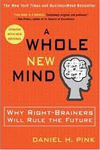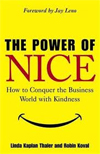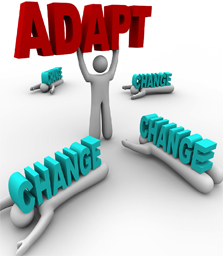© 2012
Two years ago I started working with an acclaimed industrial psychologist I hired to provide coaching for an employee. He formerly was a psychologist to the CIA and I thought, if anyone can get into my employee’s head, he can. Every phone conversation we had about this employee, however, reverted to a more general topic: young people in the workplace today. Both having sons who were in or entering college, our stories invariably zeroed in on how we have raised our kids. We talked for hours about the perceptions of their generation by employers, what they want out of their lives and careers, and most importantly, how smart they are, on the whole. We agreed on several critical points.
Their generation’s extraordinary need for mentoring is not being met in the workplace in ways that will allow them to be even smarter cognitively than others, have the emotionally intelligent insights to drive positive outcomes, and develop cognitive behaviors we know they possess or are capable of possessing. We know from experience, that if elicited, displayed and demonstrated, these behaviors are what employers are seeking in qualified candidates and meritorious employees and will distinguish them from, and give them a competitive edge over, others. Furthermore, affecting these behaviors will empower our kids in challenging work situations to deal and communicate effectively in order to influence positively others and the situations that confront them.
Why do our kids need this training? Jean Twenge PhD, in her book, GenerationMe (2006), states that the self-esteem (without a basis) movement on which Generation Y (also known as the Millennials or GenerationMe) (born between 1977-2000) have been raised “leaves kids ill prepared for the inevitable criticism and occasional failure that is real life.”
The interview is where the real world typically begins for our kids. Stated simply, our kids are not adequately prepared to beat their competition. Many young adults today think that talking about themselves is “boasting.” If only our kids were able to demonstrate key behavioral dimensions through effective story-telling about their own life experiences, we know they will be better situated to increase their chances of getting in the door. Often, the real world can be “sink or swim” or “trial by error.” Clearly, that is not the world from where our “trophy generation” kids have come. The landscape is ripe for a head-on collision.
Our analysis got the best of us. The meteorites – -Young adults (there are 74 million Millennials in the U.S.) and the present day workplace with its current demographics of multiple generations, often collide and many young adults will crash and burn (out) in today’s workplace not long after they land there. The visual was disheartening. Young adults, with their highly nurtured sense of self-esteem and confidence, epic expectations for everything and everyone, their immediate access to information and sense of immediacy in seeing expected action and results, their acute awareness of real time happenings, their use of technology as their primary and sometimes sole vehicle for communication, their need for respect and need to be mentored, their longing for immense amount of positive feedback and reinforcement, their desire to be perpetually engaged and entertained, and, let’s face it, everyone is talking about it, their sense of entitlement, just to name a few well-documented characteristics of their generation, continue to collide with some of the more harsh realities of the real work world and the people who lead that world.
We’ve all gotten the calls: “what do I say in the email for this job?” “My boss is a #$%!-head.” “I’m doing work that’s beneath me.” “I hate my job.” As parents, if we are lucky, our kids, when faced with these challenges, will phone home and we’ll have a fighting chance to steer them in a positive way and “talk them off the ledge.” If we are even luckier, we are well-equipped ourselves to provide them guidance that will put them in good stead and, if we are among the luckiest of parents, they take the advice and it works. All too often though, says one career counselor, parents are not equipped at the time of their kid’s workplace need, to provide them with objective, critical, and tough love guidance they need to be successful.
There are at least three generations currently in the work force, all of whom have distinct characteristics for leadership, success, achievement, work ethic, and advancement. While employers and the leaders who lead these workplaces have been inundated over the last handful of years with the teachings on how to change the workplace to accommodate the younger generations, not every Boomer and X generation CEO, boss and supervisor has gotten an A in that class. More importantly, up until now, we have not put the energies and effort into imparting the inside scoop about the real work world to those we care most about, our kids.
Communicating effectively and gaining cognitive insights about themselves and, more importantly, others in order to navigate and deal effectively with different personality types and challenging situations and people, such as Mr. Taylor – – the micromanaging, “fails to inspire” boss, or Jane – – the “I don’t have your back,” volatile boss, or Claire – – the impulsive, political, “I only suck up” and squish like a bug anybody below” boss – – will provide them with the competitive edge they need to succeed.
My psychologist friend asked me to imagine the working world if we equipped young adults with mentoring and teachings on how to tell stories about their scholastic and extra-curricular achievements in a way that elicits the very behaviors employers want to see. We then began to imagine the world if we taught them to be cognitively smarter, more clinically insightful, and more psychologically equipped to drive outcomes and face the challenges of the real work world and different personalities that make up that world.
After many imaginations, my psychologist friend and I, with our collective 60 years of professional experience, developed SharpenUrEdge,™ three interactive training modules that focus on five behavioral dimensions for getting in (behavioral-based interviewing), succeeding (key behaviors for succeeding in the work place) and influencing others (influencing different personalities, difficult people and challenging situations). Our business model encourages ongoing mentoring by us of our students throughout all points of their career.
This training is win-win for everyone. Young adults get the mentors they crave (75% of them want a mentor when they enter the workforce). The employers are thrilled because they know that an employee who has had SharpenUrEdge™ training will have a competitive advantage over those who do not and the burden is off of employers to navigate their workers’ careers and teach their workers what’s acceptable and not. The educational systems (high schools, colleges, and post grad institutions) are relieved because there is not enough budget money to develop educational programs that teach real life skills. And finally, parents are reassured to know that their kids are getting the objective, critical yet supportive guidance they need for the challenges of the real work world.
We are giving this most promising generation of our time what Daniel Pink calls, “A Whole New Mind.” In his best-selling book with that title, Daniel Pink states that “the future belongs to a different kind of person with a different kind of mind: . . . while left-directed thinking remains indispensable, creative and empathetic “right-brain thinkers [have] abilities [that will] mark the fault line between who gets ahead and who doesn’t.”
Bruce Tulgan, author of “Not Everyone Gets a Trophy” (2009) and founder of a leading generational research firm, Rainmaker Thinking, says, “this is the most high-maintenance workforce in the history of the world.” He said: “The good news is they’re also going to be the most high-performing workforce in the history of the world. They walk in with more information in their heads, more information at their fingertips – and, sure, they have high expectations — but they have the highest expectations first and foremost for themselves.”
Imagine the world if we provide our kids with behavioral-based, interactive training that will influence positively their very purpose for being and give them a genuine basis to possess confidence and self-esteem. . . .

 A Whole New Mind
A Whole New Mind Generation Me
Generation Me The Power of Nice
The Power of Nice




{ 0 comments… add one now }